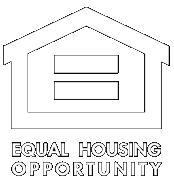BOLD PREDICTIONS FOR THE 2021 GREATER BOSTON HOUSING MARKET
– posted 2/7/2021 by Sam Schneiderman, Greater Boston Home Team’s President & Principal Broker
Now that we have a more solid grasp on how vaccinations are likely to affect the economy and local housing market, we are comfortable making some predictions about where we think the Greater Boston housing market is headed.
2021 housing crash unlikely
A housing crash in the Greater Boston area is highly unlikely in 2021 even though lenders and owners will have to deal with some serious mortgage delinquency issues as a result of COVID layoffs. Mortgage lenders are not eager to foreclose and should be motivated to restructure loans. The Biden administration is very pro-housing, and we would not be surprised to see a program that offers help to delinquent owners that are still out of work and/or incentives to lenders to restructure debt.
In addition, home appreciation has been so strong over the past few years that most sellers would be foolish to let a foreclosure happen without trying to sell on the open market and cash out on their equity. (If someone you know is having trouble paying their mortgage, we are available to help them try to keep their home or we can show them how to profit from a sale.)
Good news for sellers!
In the Greater Boston area we are currently experiencing an overheated real estate market, especially in the first time buyer single family home market. We expect that to last at least until the end of June or into July.
Expect strong price appreciation during the first half of 2021
Due to very high buyer demand and very low supply, we predict that prices will increase between 4 and 7 to 10 percent in many Greater Boston towns between now and June. (On a $500,000 home or condo, that is an increase of $20,000 to $35,000 to 50,000.) We expect appreciation values to moderate a bit after mid to late summer and flatten around November.
Probable housing market cool down late this year
The combined increase in the cost of financing, coupled with strong price appreciation between now and June plus a continued shortage of sellers will most likely help the market to slow down a bit in the third and fourth quarter of this year. Despite those factors, there may still be more buyers than sellers. More vaccinations will make more sellers comfortable about putting their homes on the market. That may be great news for buyers, but if our predictions are correct, the cost to buy and finance will be greater later this year.
Possible first time buyer assistance later this year or next
On President Biden’s wish list is assistance for first time buyers. We understand that he would like to see up to $15,000 available at closing for first time buyers to assist with their closing costs. While we think that helping first time buyers is a great idea, we are more concerned that a program like that will only increase the competition in the first time home buying market and create more buyers to bid the prices up. In a very competitive market, that would most likely negate the benefits of such a program as it would help to price first time buyers out of the market.
Our advice to 2021 buyers
Waiting for the competitive market to cool is likely to be costly for you, but buying a property that isn’t right for you can be worse. Don’t be afraid to get into the market now if you are able to realistically compete with other buyers, but look at properties priced 5 to 10% below your price limit because you should expect to get into bidding wars with other buyers.
Our advice to 2021 sellers
COVID-safe selling is possible. You probably have more options to achieve a profitable and safe sale than you realize. Strike while the market is hot, but only if you have a place to go because trying to buy your next home quickly could be a challenge.
Looking ahead – Rethinking home & work in 2021 and beyond
The pandemic is causing employees and employers to rethink work. We are already seeing this play out among our buying and selling clients.
We expect that many employers will continue to allow remote work from home for workers who can prove that they can work independently. Maybe more important is that we see many of our buyer-clients looking for more home office space and telling us that they do not intend to return to a workplace more than two or three times a week, even if that means a job change for some. That mindset is allowing those buyers to move out further from central Boston than they normally would.
Investment & Commercial real estate
Commercial real estate values have fallen rapidly as a result of vacant offices, along with failed business tenants and those barely in survival mode. That is likely to lead to commercial landlords that can’t pay their taxes.
Lenders and possibly municipalities will most likely work with landlords as long as they have a plan to get back on their feet. The lack of commercial tax revenue could be a big challenge for cities like Boston that depend on high commercial property taxes for revenue. It is possible that residential tax rates could rise to help cover the gap.
If the economic recovery is sluggish and workers insist on working from home, we expect to see continued commercial vacancies. If that continues, we would like to see those vacant commercial properties turned into sorely needed housing. Such a plan would create more housing opportunities and that would help to balance the real estate market.


